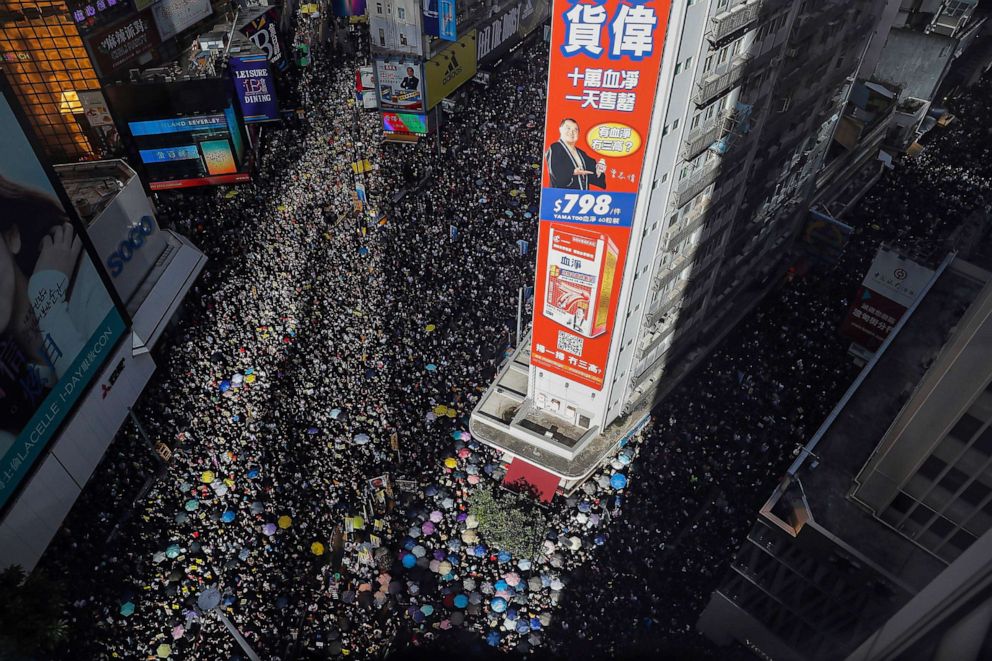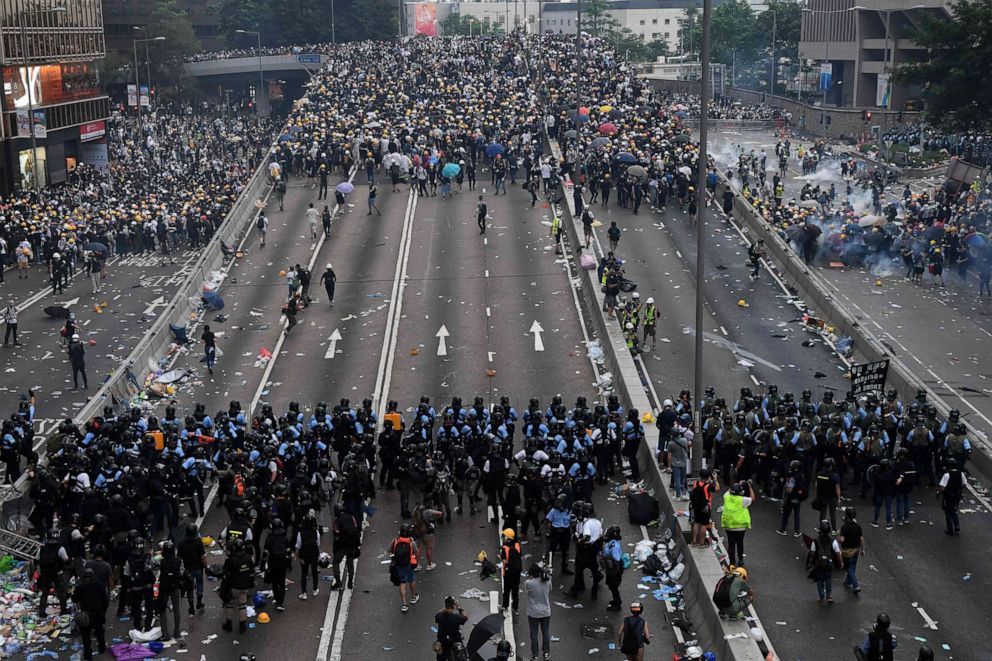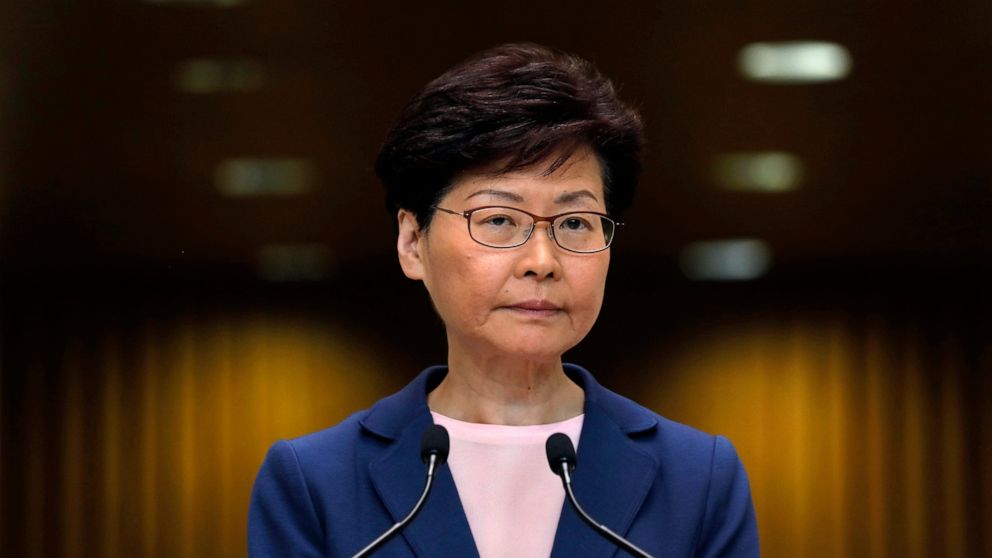Hong Kong leader says extradition bill is 'dead' but doesn't formally withdraw it
LONDON -- Hong Kong leader Carrie Lam said Tuesday that a highly contentious extradition bill that sparked weeks of mass protests is "dead," but she fell short of protesters' demands to fully withdraw it.
Lam tried to reassure the public that lawmakers wouldn't seek to bring the draft legislation back for a vote.
"There are still lingering doubts about the government's sincerity or worries whether the government will restart the process in the Legislative Council," Lam said at a press conference Tuesday. "So I reiterate here, there is no such plan. The bill is dead."
The proposed amendment would allow any country, including mainland China, to request the extradition of an individual to their home country from Hong Kong for trial. Many who oppose the bill fear China could use it to pursue political dissidents.

Protest leaders on Tuesday continued their calls for the bill to be formally withdrawn from the legislative agenda and for an independent investigation into clashes between police and demonstrators.
Hong Kong pro-democracy activist Joshua Wong said Lam's reassurance that the "bill is dead" is just "another ridiculous lie."
"The bill still exists in the 'legislative programme' until July next year," Wong wrote in a series of posts on Twitter. "The proper way for Mrs Lam to "kill" the bill is to invoke article 64 of the Rules and Procedures, to FORMALLY WITHDRAW the bill. However, she fully IGNORE this procedure in her speech."

Millions of protesters have taken to the streets of Hong Kong over the past month amid growing anger over the proposed bill as well as general dissatisfaction with local politicians. The demonstrations have been largely peaceful but turned violent at times.
Last week, protesters smashed through thick glass panels to break into the Legislative Council building and swarmed a chamber, where they spray painted slogans on the walls and took down portraits of city leaders.
On June 12, police officers fired tear gas and rubber bullets to disperse throngs of protesters blocking major streets. Dozens were injured.




